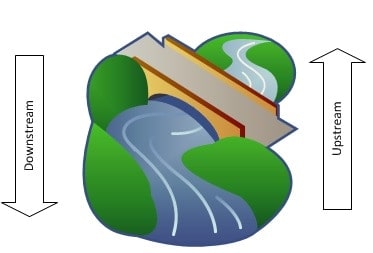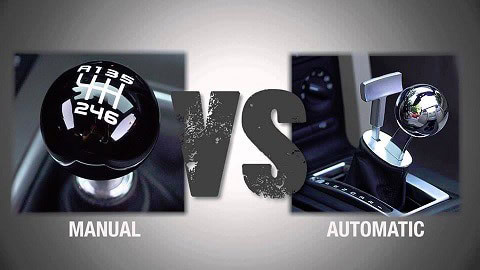Why Your Business Listings/Citations Consistency Matters
As a small business owner today, you need to make sure your business can be found by the people looking online for your goods and services.
In this Local SEO Fundamentals article, we will explore why your business listings/citations consistency matters and is an important component of your local search results ranking.
The Difference Between SEO And Local SEO
In order to tackle this subject, it’s important to understand the difference between standard organic SEO and Local SEO.
Whereas the purpose of SEO – or Search Engine Optimization – is to employ techniques and procedures to help a website be found organically (not paid) on search engine results pages (SERPs), Local SEO focuses on getting local businesses found.
The objective is to market and promote your business (name, address, phone number, services provided, hours of operation etc…) not just your website.
You want your new customers to call you or walk through your front door not just visit your website.
On-site & Off-site Local SEO
Within the Local SEO ranking factors, we can further break it down along the lines of ‘on-site’ and ‘off-site’. Aspects of your business found on your website, like the content copy, site architecture, internal and external links etc…falls under the ‘on-site’ components.
Things related to your business online, but not on your website are considered ‘off-site’. Elements include your business listings on online business directories and apps, online reviews, and mentions on forums and social media.
Local Business Listings/Citations are often overlooked
Since local SEO is associated with a brick-and-mortar business it, therefore, has a geographical component.
Business Listings/Citations with the name, address, and phone number and website URL, or ‘NAP+W’, is, therefore, critical for people to find you.
The consistency of your NAP across the web sends a very strong trust and relevancy signal to Google and the other search engines people use.
Inconsistencies in your NAP will invariably cause confusion for both search engines and potential customers, causing them to look elsewhere to find what they’re looking for.
It seems obvious, but you’d be amazed at how many people neglect to have this information consistent on their website, let alone on the numerous directories and listings websites that consumers search with local intent.
In order to even begin to rank in a local search results page, it is imperative that your NAP+W is both consistent and listed on all the important directories in your niche. Your business listings/citations consistency matters if you want to be found online.
The Chaotic Mess That is The Web
Consider these relevant facts.
- Google My Business (GMB) ‘suggest an edit’ feature allows almost anyone to make changes to your GMB page – even if it’s owner-verified! To compound the issue, you as the business owner get no indication as to who suggested the edit! This lends itself to serious abuse.
- The average business listing can change on average every six days. [Yext 2013]
- In 2013 it was estimated that the cost for missing listings is $10.3B a year for the businesses who are not present. Today that cost is even higher!
- When presented with incorrect information about a business online, 73% of people lose trust in that business.[Yext 2013]
Whether you know it or not, your business information may already be listed on several directories with inaccurate information.
Have you moved locations or changed your phone number since you’ve been in business? Do you have a DBA associated with your company?
Search engines will extract information from all sorts of places across the web. Irrelevant and outdated information may still be floating in the chaotic mess that is the world wide web. Unscrupulous competitors and trolls can manipulate and sabotage your listings.
You understand that your business listings/citations consistency matters, but how can you ensure that the correct and relevant information is what shows up?
Aggregator Submissions vs Direct-to-Site Submissions
In order to build your business listings/citations properly, you have to submit your NAP(+W) to be listed on all the important online directories, mapping apps, and listings websites that are out there.
If it sounds daunting, it is. There are literally hundreds of directories and sites out there! Where do you even begin?
 To start it is important to understand how business information is disseminated across the web. In the US, there are four central data aggregators – Acxiom, InfoUSA, Neustar/Localeze, and Factual.
To start it is important to understand how business information is disseminated across the web. In the US, there are four central data aggregators – Acxiom, InfoUSA, Neustar/Localeze, and Factual.
These data aggregators collect and distribute business listings and information to the various directories and websites that depend on this information.
Consequently, you have a choice when it comes to building your business listings/citations properly.
Either, have the information submitted ‘upstream’ to the data aggregators themselves, or ‘downstream’ directly to the directories and listings websites.
The Pros and Cons of Submitting your listings ‘Upstream’
At the very least you should be submitting your business listing information ‘upstream’ to the main data aggregators and set up a ‘Google My Business’ page. This will at least get your business listings properly listed – at least initially.
You can do this manually at each of the aggregators here:
- Infogroup:
- Neustar Localeze:
- Acxiom:
- Factual:
To set up your ‘Google My Business’ page follow these easy to follow instructions in this ‘Google Small Business video’ – How to add or claim your business on Google.
To get this done efficiently and correctly, you may want to consider using an inexpensive service called Moz Local. For $99/yr. per location, you get the essentials done right.
To quote them directly “Moz Local pushes accurate location data to all the major data aggregators and several top-tier online directories help you close duplicate business listings and lets you easily update your business listings.”
The cons for only submitting to the main data aggregators are that
1) Only your business’ NAP(+W) is listed. Enhanced content like business profiles, pictures, times of operation, coupons and menus, and the like are not supported.
2) Your information updates slowly – listing changes can take 2-3 months, which will delay the proper impact on search engines.
3) Listings are not claimed on each site, which means other people can claim and manipulate your listings instead of you.
4) Data can also revert if the fee into aggregators isn’t paid annually.
The Pros and Cons of Submitting your listings ‘Downstream’
Alternatively, you can submit your listings to the listings companies themselves ‘downstream’.
The most obvious benefit of the direct-to-site method is the ability to enhance your content beyond the standard NAP+W.
The advantages of rich content vs. basic NAP+W are astounding.
Consider the following statistics compiled by Yext [Yext, 2016.]
- Business listings with enhanced content receive 416% more views than those without.
- For Yelp, listings with hours received 120% more page views. This is likely driven by the high percentage of searches on Yelp that come from mobile users (65%), who are more likely to convert immediately.
- Businesses that link to their Twitter handle and Facebook page from listings received 54%-83% more listing views. Social profiles provide consumers another opportunity to engage with a business.
- Listings with rich content (photo gallery, videos, descriptions) received 45%–61% more listing views. Many businesses have this content on their website or social profiles that can easily be repurposed for use in listings.
- Listings with enhanced content lists (menus, calendars, product lists) received up to 120% more listing views on average. For certain verticals (restaurants, beauty) lists related to the highest number of profile views.
With consumers depending on mobile devices more and more, enhanced content will become even more necessary than just having the basic name, address, phone number, and website URL.
Since the information is uploaded immediately in real-time, by adding a few simple pieces of information to enhance their listings, businesses paint a fuller, more compelling picture for consumers – instantly!
Direct-to-site manual vs automatic data submission

This direct-to-site approach can either be done manually or automatically.
While the manual approach allows you to own your business listings/citations (no one can manipulate your information) and update the information as you please, enhancing your listings with new data becomes extremely tedious.
There are many advantages to automatic listing services.
- Direct integrations with over 100 global maps, apps, search engines, directories, and social networks that put you in control of how your business listings appear everywhere customers search.
- They allow you to update and enhance the content of your listings via a central dashboard once. It then automatically distributes this enhanced content to all the listings that support it. This single-point control saves you hours and hours of monotonous repetitive work managing multiple listings.
- As long as you maintain your subscription, your listings are locked, preventing others from changing your information.
- Most automatic services offer duplicate suppression as well which helps your SEO efforts so consumers never see incorrect or incomplete data about your brand.
The downside to the automatic data submission approach is that the annual fees can be costly, and if you stop using the service, the listings can (& typically do) revert back to the way it was before.
In Conclusion
In today’s mobile-dominated world, you need to be able to be found online by those searching for your goods and services.
Your business listings/citations can be submitted ‘upstream’ or ‘downstream’, manually or automatically.
Obviously, each business has to weigh the pros and cons and decide which method is best for them. One thing I can’t underscore enough is that your business listings/citations data consistency matters fundamentally to your local search rankings. How you achieve that is up to you.
Here at LocalBizGuru, we offer affordable solutions that cover all of the various methods we discussed. To schedule a free consultation with one of our expert account representatives please call 855-970-GURU (4878)
Hopefully, this article has provided you with a better understanding of the importance of business listings/citations consistency and a number of strategies you can use to get them in order.
If you have any questions or want to dive deeper into these points, contact us or get in touch on LinkedIn, Twitter, or Facebook. I look forward to continuing this conversation!



